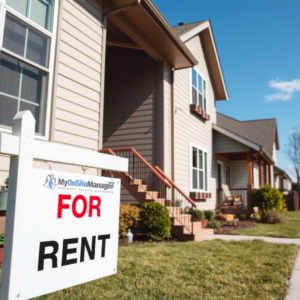The American dream of owning a home has long been a pillar of financial success—but in 2025, that dream is shifting. According to a new article from Newsweek, renting a home is now more affordable than buying in many parts of the United States, and the trend may continue for the foreseeable future.
Homeownership Costs Are Rising
The surge in home prices over the past few years, combined with persistently high mortgage rates, has made it increasingly difficult for average Americans to enter the housing market. While home prices have stabilized in some regions, interest rates on mortgages remain steep, effectively pricing out many would-be buyers. With monthly mortgage payments soaring beyond the budgets of middle-income families, the reality is clear: buying is no longer the obvious choice.
This affordability crunch is especially tough on first-time homebuyers, who often face stiff competition, low inventory, and increasing down payment requirements.
Renting Becomes the Affordable Alternative
In contrast, the rental market is offering a more financially viable option. Newsweek highlights how, in many U.S. cities, the monthly cost of renting is significantly lower than the cost of owning a similar property. For renters, this means the ability to save more, avoid long-term debt, and maintain flexibility in uncertain economic times.
Some cities are even experiencing slight declines in rent or slower increases, allowing renters a bit more breathing room than they’ve had in years past. Although rents are still high in hotspots like New York and San Francisco, the national picture reveals a growing affordability gap in favor of renting.
High-Cost Cities Still Pose Challenges
That said, not all renters are catching a break. In major metropolitan areas—where demand continues to outpace supply—rents are climbing again. For example, San Francisco has seen a 10.3% increase in apartment rents, pushing the average monthly cost to $3,200. New York remains one of the priciest cities for renters, with many paying record-high prices for modest spaces.
These urban centers are grappling with a deeper structural issue: a housing shortage that cannot be fixed overnight. And while renting may still be cheaper than owning, the cost burden is heavy for many city dwellers.
Innovative Solutions on the Horizon
To combat the housing crisis, a wave of innovation is making its way into the market. Developers are increasingly turning to 3D-printed homes, modular housing, and factory-built construction to quickly and cost-effectively produce new homes. These technologies promise to cut building costs and timelines, potentially easing the affordability strain for both renters and buyers in the long term.
However, widespread adoption of these alternatives depends on zoning laws, local government support, and public perception—factors that vary widely across the country.
What This Means for You
If you’re considering your next move in 2025, now is the time to reassess your housing strategy. While owning a home may still be a worthwhile goal, renting offers clear financial advantages in today’s market. It allows for greater flexibility, fewer upfront costs, and a lower monthly burden in many cities.
Whether you’re saving for a down payment, navigating a career change, or simply seeking financial stability, renting may be the smartest move you can make right now.
Source: Rental Housing Market Is More Affordable in 2025 Than in Many Years

